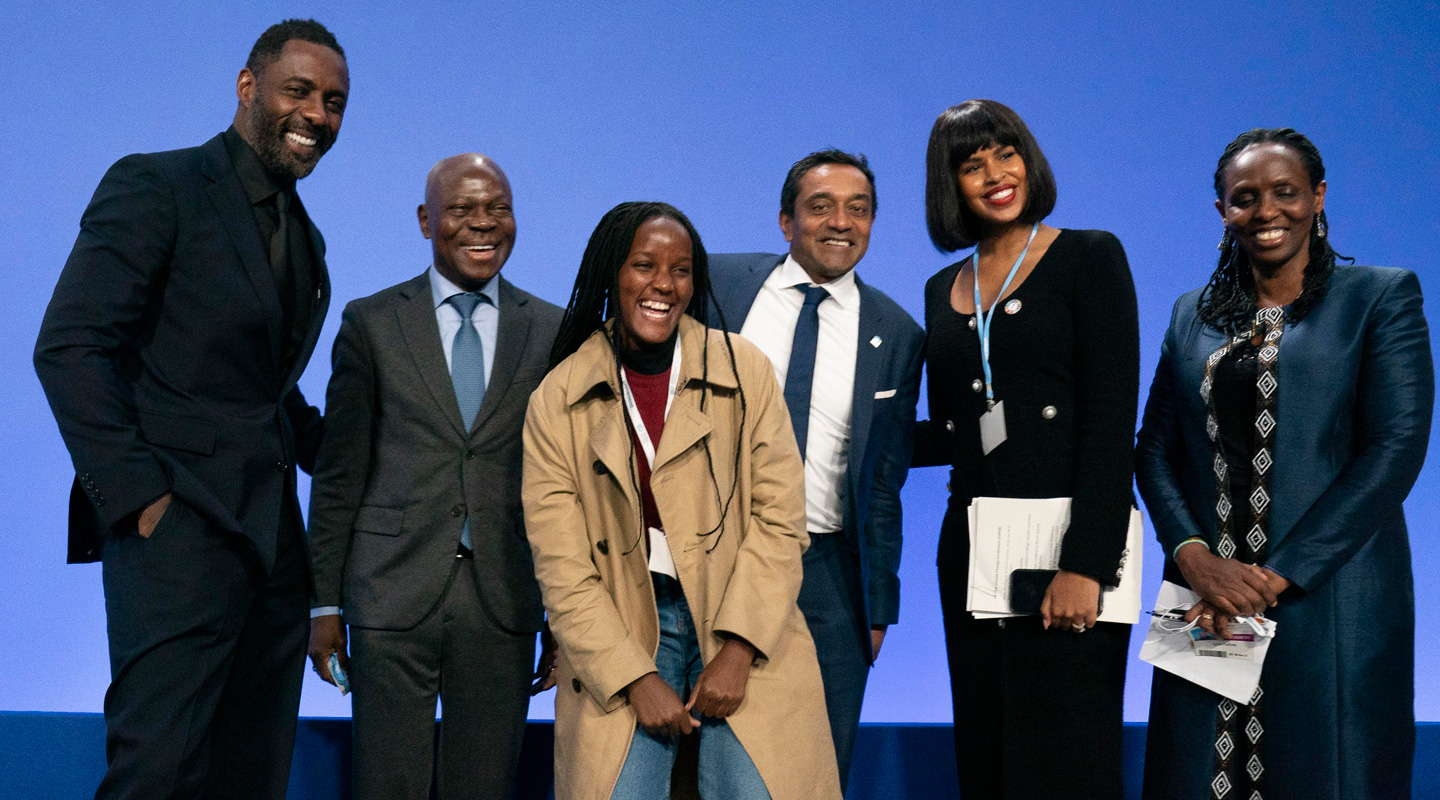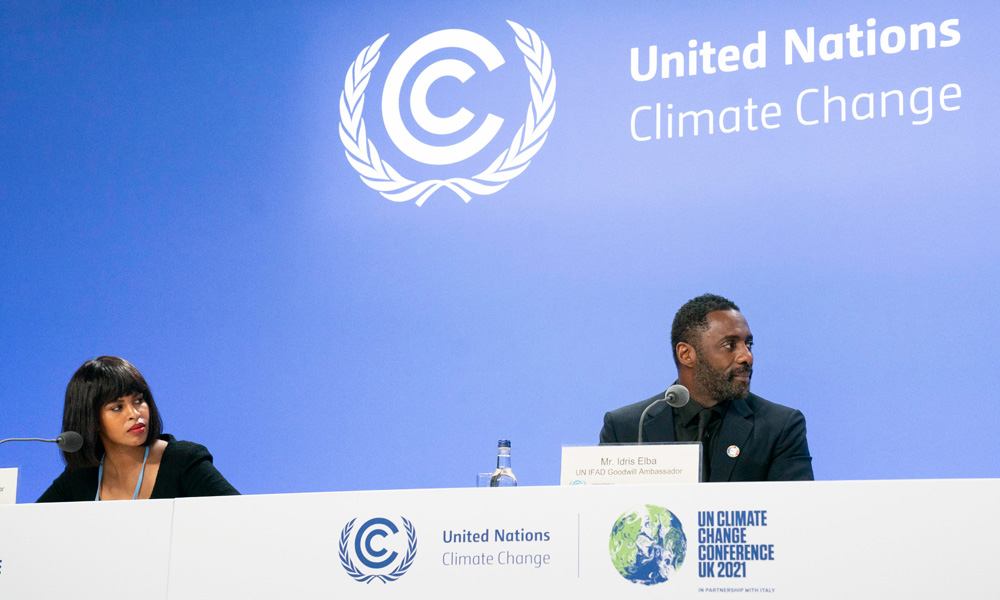Lo más destacado de la COP26 - Sábado 6 de noviembre
IFAD Asset Request Portlet
Publicador de contenidos
Lo más destacado de la COP26 - Sábado 6 de noviembre
Tiempo estimado de lectura: 3 minutos |
| (de izquierda a derecha) Idris Elba, Embajador de Buena Voluntad del FIDA; Gilbert F. Houngbo, Presidente del FIDA; Vanessa Nakate, activista ugandesa por la justicia climática; M. Sanjayan, Director General de Conservation International; Sabrina Dhowre Elba, Embajadora de Buena Voluntad del FIDA; Agnes Kalibata, Enviada Especial de las Naciones Unidas para la Cumbre sobre los Sistemas Alimentarios. |
Idris y Sabrina Elba piden más inversiones para la agricultura a pequeña escala
Idris y Sabrina Elba, Embajadores de Buena Voluntad del FIDA, asistieron a la COP26 para garantizar que los agricultores africanos no queden al margen del debate sobre la crisis climática y promover una mayor inversión en los pequeños agricultores y productores agrícolas para que puedan adaptarse al cambio climático....
Este contenido se encuentra disponible sólo en inglés.
 |
''Alongside keeping fossil fuels in the ground, we also need to fix our food systems,'' said Sabrina Elba. ''Because if we don’t fix how we grow our food, and value the people who put food on our tables - the custodians of this earth - we won’t survive. It really is that simple''.
IFAD's President told journalists attending a press conference that while it is important to invest in efforts to mitigate climate change, small-scale farmers are on the frontlines and are experiencing immediate impacts.
"When we talk about climate change, the first to pay the price are those small-scale producers," said President Houngbo. "So while we know mitigation is key, we have to keep in mind that mitigation will only give us the impact we want 20 to 30 years from now. Our small-scale producers are suffering now."
After the press conference, Vanessa Nakate - a Ugandan climate justice activist, and Conservation International, the Elbas met with government and UN officials and spoke at the Sustainable Agriculture plenary.
''It is deeply unfair that the people who contribute so little towards climate change are bearing the brunt of it,'' said Idris Elba at the press briefing. ''Climate change is already starting to affect global food supplies and this is going to be an issue for us all.''
Their work is part of a larger campaign to shed light on IFAD’s work in rural development and in particular the flagship Enhanced Adaptation for Smallholder Agriculture Programme (ASAP+) - which is a 100 per cent climate financing mechanism. ASAP+ is envisioned to be the largest fund dedicated to channelling climate finance to small-scale producers.
''The climate crisis is a food crisis and the food crisis is a humanitarian crisis,'' said Nakate. ''There is no climate justice without ensuring that there is food justice''.
Climate finance negotiations continue
COP26 will fail to achieve a lasting impact in the fight against climate change if world leaders continue to neglect the urgent need to invest in adaptation by focusing mostly on mitigation. Investments need to be directed to small-scale farmers in developing countries as they are particularly vulnerable to the impacts of climate change and biodiversity loss.
For every 18 dollars spent on mitigation, just one dollar is spent on adaptation. That needs to change. While efforts in mitigation are essential, they will take decades to bear fruit. Insufficient funding for adaptation will have a ripple effect across the world. Failed crops increase hunger and poverty, and trigger more conflicts, forced migration and instability.
There have been extensive discussions on the new collective quantified goal on climate finance. It is a new agenda item and parties are putting forward their initial proposals. The goal in Glasgow is not to set a specific number, but to establish a process for countries to learn, deliberate, and decide how much finance developed countries (and those able and willing to do so) will provide and mobilize. While there has been an increase in climate finance only 0.34 per cent of the finance flows via UN climate funds, risking not to reach the most vulnerable individuals.